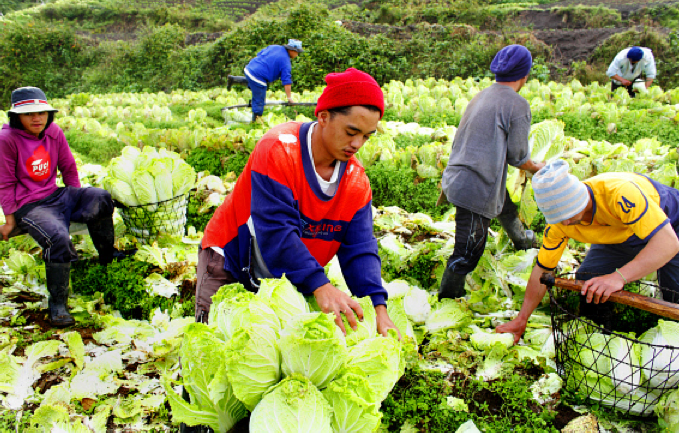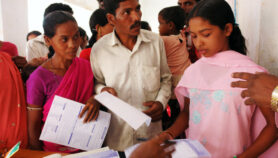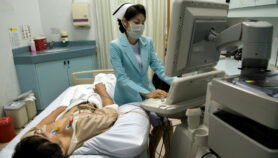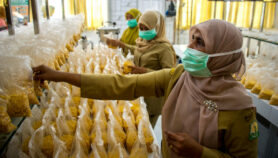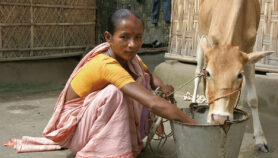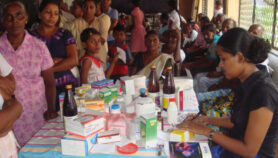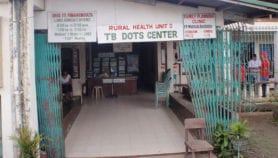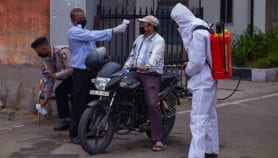Send to a friend
The details you provide on this page will not be used to send unsolicited email, and will not be sold to a 3rd party. See privacy policy.
[MANILA] To help local farmers in the fight against poverty, 23-year old Rachel de Villa co-founded an agritech startup that recently earned her a spot on Forbes’ inaugural “30 under 30” list in Asia.
Cropital, the organisation she established with two other young Filipinos, serves as a crowdfunding platform to provide poor farmers access to scalable and sustainable financing, giving the country’s sluggish agriculture sector a needed lift.
Institutions in the United States, Malaysia, the Netherlands, and the Philippines are supporting the organisation, which provides investors the opportunity to improve the lives of farmers while growing their (the investors’) money and gaining a return through a net profit sharing scheme. Returns are gained in less than six months and range from 3-30 per cent.
Says De Villa about her inclusion in Forbes’ new Asia list of top promising young leaders aged 30 and below from different fields: “I am ultimately most grateful for the selection because it brings more attention to Cropital and our mission to serve farmers in the Philippines and around the world through sustainable financing.”
Fundraising platform for farmers
De Villa, a software engineer and Cropital’s chief technology officer, believes the attention came at the right time as the firm was on a new round of fundraising, this time for Napier farms which convert biomass to fuel as a source of renewable energy.
“We’ve raised more than one million pesos (US$21,590) through 150 farm investors from around the world. We are now able to secure jobs for more than 20 farmers in the next five years and grow clean and renewable energy,” she tells SciDev.Net.
The funded farmers, she adds, have responded with gratitude: “A few of the farmers find it hard to believe that a genuine pro-farmer organisation like Cropital exists. They consider being part of it a privilege.”
The inspiration for the organisation, says De Villa, was a result of a brainstorming session with Cropital co-founders Ruel Amparo and Everett Ubiadas. When one of them, who owns a farm in Bulacan province, had to finance it himself after graduating from college, the three friends realised that a lack of funds was a major problem among local farmers and a key reason they remained poor.
Saturnina Halos, chair at the Biotechnology Advisory Team of the Philippines Department of Agriculture, explains that most farmers in the country are in need of funding and borrow capital to grow their crops.
"About 80 per cent of the 400,000 GM corn farmers borrow capital from individual financiers. Only about 20,000 farmers of the 11 million agri-fishery workers access the agricultural credit from the various government credit programs annually. They have almost no access to government credit because this loan goes through the banking sector and farmers do not have the knowledge and trust in the banking system," Halos tells SciDev.Net.
She adds that most often these farmers do not have the equity nor patience nor appreciation of the paper work involved in securing loans.
De Villa says a farmer’s average income is only US$43 per month, pushing the majority of them below the poverty line. According to the World Bank, the agriculture sector employs 47 per cent of the workforce but accounts for only 12 per cent of the gross domestic product. Two-thirds of the poor are engaged in the agriculture, fishery and forestry sectors, live in rural areas and have an elementary school education or less, according to 2013 official statistics. With young people moving to urban areas and shifting away from farming, the average age of Filipino farmers is now at 57, creating an additional issue for the future of local food production.
“This reality of Philippine agriculture is unacceptable. Cropital aims to change this,” De Villa clarifies her motivation of starting the crowdfunding platform. From idea to conception, Cropital was born in five months.
Looking back and forward
De Villa admits she was surprised at the early success of the company, which was able to raise US$10,800in just three days after its launch, fully funding Cropital’s initial five farmers in Laguna province. She explains that the primary goal of investors, whose minimum monetary commitment is US$108, is not to earn a substantial return but to help local farmers.
Jocelyn Labios, assistant dean of the College of Agriculture at the University of the Philippines Los Baños explains to SciDev.Net that cooperatives and farmers' organisations are crucial for farmers in securing loans as their chances for funding are enhanced when organised into associations rather than applying for loans individually. Those most affected, she adds, are small rice farmers in the Southern Luzon region, who count among the poorest.
So far, Cropital has faced some roadblocks in terms of market, weather and harvest uncertainties and other risks associated with farming but will soon be able to reward the first round of investors with a profit. By next year, Cropital will have launched more than ten pilot projects, providing employment and improving the lives of more than 300 farmers, De Villa says. “A number of the pilot projects will by then be deemed mature enough for scaling. We plan on raising around US$216,000 for the pilot projects and farms.”
De Villa’s five-year plan includes continuing to grow Cropital into a household brand within the Philippines and expanding it in the ASEAN region, providing financing and agricultural services and support to farmers.
She hopes that in this period, Cropital will be supporting thousands of farmers around South-East Asia who will be matched with established contract buyers, efficient production systems and weather resilience technology. The focus of the enterprise will then shift more towards ensuring food security for certain countries in the ASEAN region.
“We aim for a world where farmers are dignified and empowered and no longer live in debt,” she explains.” We aim to give farmers the life they have always deserved.”
This piece was produced by SciDev.Net’s South-East Asia & Pacific desk.


